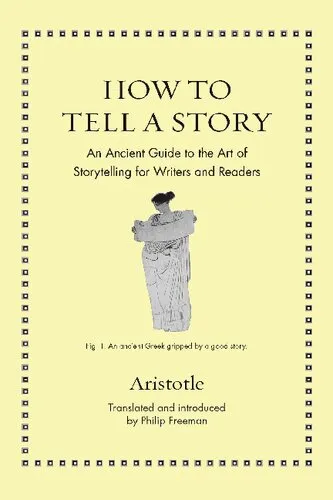How to Tell a Story: An Ancient Guide to the Art of Storytelling for Writers and Readers (Ancient Wisdom for Modern Readers)
4.7
Reviews from our users

You Can Ask your questions from this book's AI after Login
Each download or ask from book AI costs 2 points. To earn more free points, please visit the Points Guide Page and complete some valuable actions.Related Refrences:
An inviting and highly readable new translation of Aristotle’s complete Poetics―the first and best introduction to the art of writing and understanding storiesAristotle’s Poetics is the most important book ever written for writers and readers of stories―whether novels, short fiction, plays, screenplays, or nonfiction. Aristotle was the first to identify the keys to plot, character, audience perception, tragic pleasure, and dozens of other critical points of good storytelling. Despite being written more than 2,000 years ago, the Poetics remains essential reading for anyone who wants to learn how to write a captivating story―or understand how such stories work and achieve their psychological effects. Yet for all its influence, the Poetics is too little read because it comes down to us in a form that is often difficult to follow, and even the best translations are geared more to specialists than to general readers who simply want to grasp Aristotle’s profound and practical insights. In How to Tell a Story, Philip Freeman presents the most readable translation of the Poetics yet produced, making this indispensable handbook more accessible, engaging, and useful than ever before.In addition to its inviting and reliable translation, a commentary on each section, and the original Greek on facing pages, this edition of the Poetics features unique bullet points, chapter headings, and section numbers to help guide readers through Aristotle’s unmatched introduction to the art of writing and reading stories.
Free Direct Download
You Can Download this book after Login
Accessing books through legal platforms and public libraries not only supports the rights of authors and publishers but also contributes to the sustainability of reading culture. Before downloading, please take a moment to consider these options.
Find this book on other platforms:
WorldCat helps you find books in libraries worldwide.
See ratings, reviews, and discussions on Goodreads.
Find and buy rare or used books on AbeBooks.



